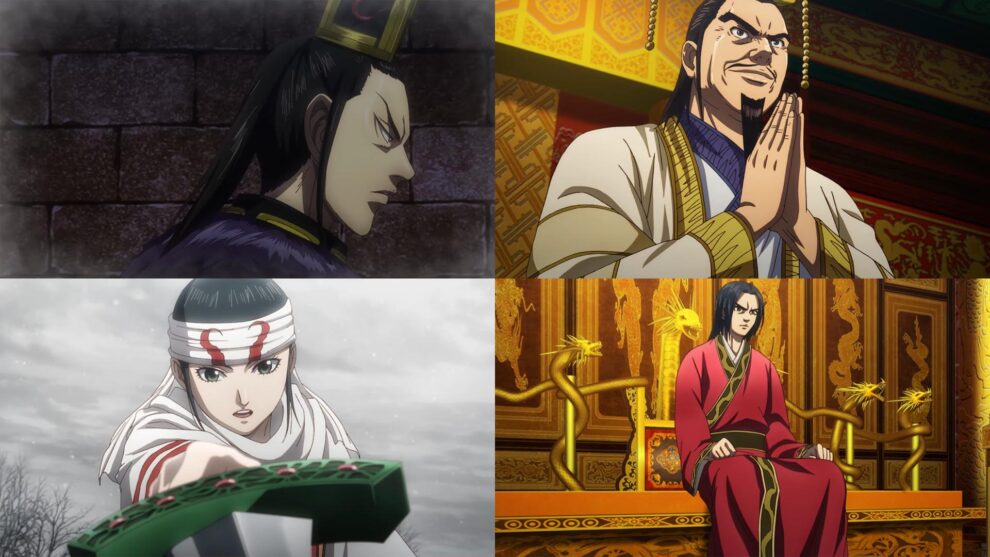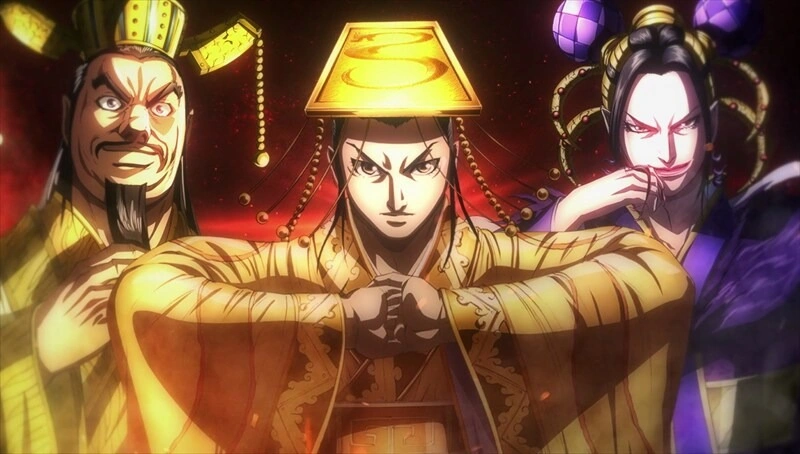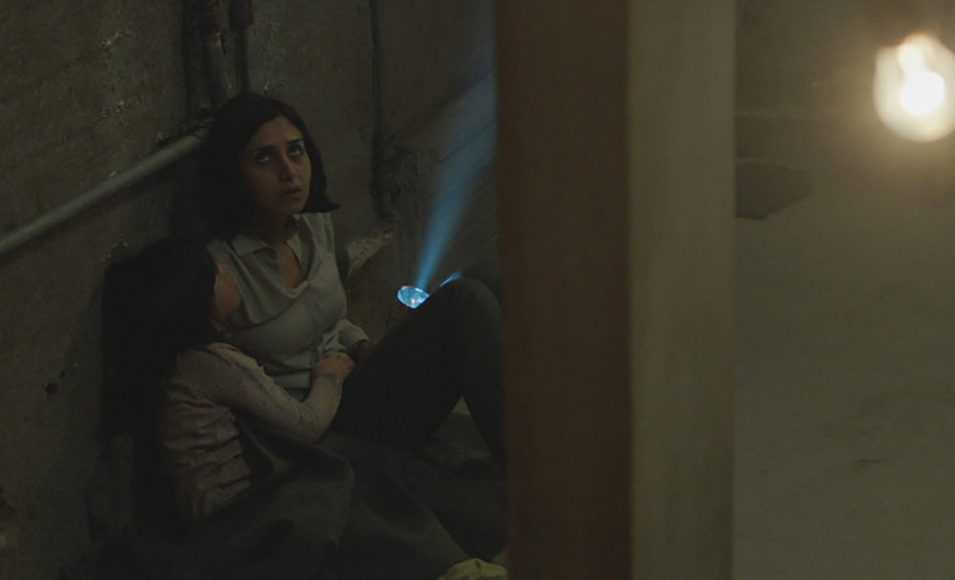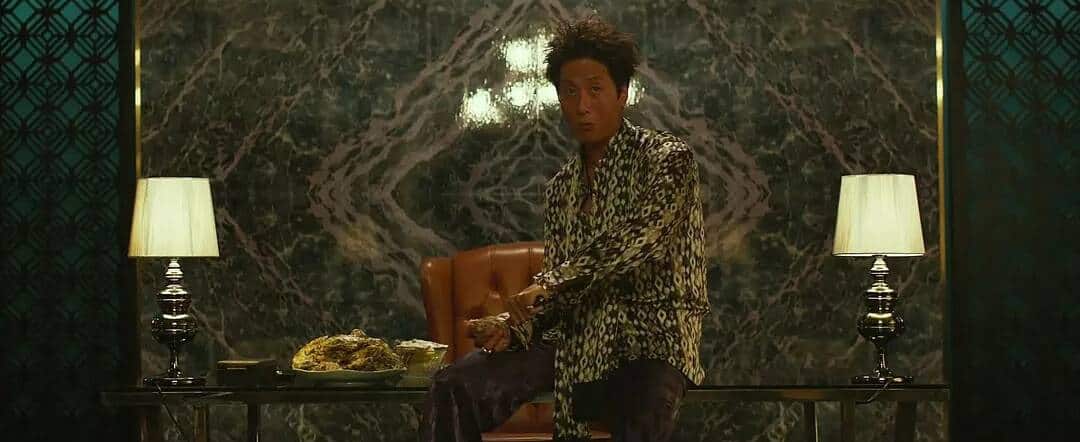As we mentioned in the reviews of the previous two seasons, the focus turned almost completely to action, leaving the political as a footnote, in an approach that somewhat detracted from the quality of the narrative, although the action definitely compensated. For the fourth season, however, the political, and particularly the clash between Zheng and Lu Buwei takes center stage, eventually involving the Dowager Mother, in what eventually becomes the biggest threat the former has faced thus far.
Watch This Title on Crunchyroll
by clicking on the image below
Following the conclusion of the large-scale coalition campaign, the entirety of China is in a state of economic turmoil, with the expenses of the war laying heavily on them, and a number of protagonists of the losing side, having been sidelined or even killed for their failure, with Li Mu being one of first category. The state of Qin, despite winning the war, is not in better condition financially, while the antagonism between chancellor and king is raging full on, despite the increased trust Zheng's actions in the coalition army have brought him. Furthermore, Lu Buwei, who seems to have no problem with his cash flow, is planning to overthrow Zheng during his crowning ceremony in 18 months.
Meanwhile, a Zhao army numbering 20,000 troops has set out toward Qin. In the royal court, due to the lack of generals capable of responding to the incoming threat, Lu slyly suggests that Zheng take command. However, Cheng Jiao, Zheng's half-brother, volunteers instead. As they grew to trust each other during the coalition battle, Zheng now accepts Jiao as his replacement. Soon, though, it is revealed that it was all Lu Buwei's plan and Xin finds himself trying to save the day for Zheng once more. As the crowning day nears, the rather intricate plan of the chancellor comes to the fore, while the Queen Dowager, who has taken up a castle by herself and has declared the birth of a new nation, also plays a crucial role.
Check also this interview
Considering that the previous season was essentially one big battle, with the exception of the last two episodes, the change in the narrative approach, which is more balanced although leaning towards the political, is quite welcome. This change in approach works quite well since the three factions in the palace, Zheng, Lu Buwei and Queen Dowager, their antagonism and their interconnections are quite intriguing to watch, with the change in the upper hand, the twists and the switching of sides resulting in a truly captivating spectacle. Furthermore, the political duel, presented through the clash of philosophies between the two men, as exhibited during the crowning ceremony, is rather interesting to watch, but at the same time, is combined with a battle raging on in Xinyang, with the mixture working exceptionally well.
Also of note is how Kenichi Imaizumi and Kazuya Monma frame the villains of the story, with their army branch being rather despicable, particularly as they start butchering kids and women. That Lu Buwei does not care about casualties as long as he gets to rule also frames him in the same light, while the Queen Dowager emerges as equally despicable, being saved, though, by the way she cares for her new kids, despite the poison she keeps for her first son. As such, the virtue of Zheng is exemplified, even though the punishment he admonishes to his opponents is equally harsh.
Furthermore, Xin emerges once more as a hero throughout the two main arcs of the season, while the race among him, Tian Meng and Wang Ben, in what the three soon realize is the last spot in the resurrection of Qin's six great generals, ads another level to the story, that is about to be explored more thoroughly in the next seasons. Lastly, the political turmoil in Chu, which gradually emerges as Qin's biggest antagonist, cements the rather rich narrative of the season, which story-wise, is probably the best so far, on par with the first one.
The action, although toned down, is impressive as usual, although the CGI (despite some improvement) still looks repetitive and the Deus-ex-Machina trope is definitely overused. Furthermore, the battles in the first part of the story are somewhat unremarkable, but the drama, which actually dominates the majority of them throughout the season, definitely compensates. This aspect actually emerges as one of the best of the season, with the agony regarding the fate of the non-combatants, the death of some of the key individuals in the story, and the aftermath of the whole thing adding another level to the battles, which definitely makes them more interesting. The impressive one-on-ones are missing this time, but the aforementioned approach will definitely make any viewer forget about them.
In terms of the technical aspect, Hisashi Abe's character design looks a bit more blunt, particularly in the facial characteristics of the various protagonists, although, considering the amount of (new) characters in the story, that is to be expected. The backgrounds, on the other hand, both in the exteriors and particularly within the various palaces, look more impressive than ever, both in coloring and amount of detail, with the same applying to the overall appearance of the characters, with the Queen Dowager definitely standing out in that regard. Furthermore, and for the first time in the series, her arc includes an erotic element, which definitely adds to the entertainment of the season and the depth of the story. The animation by Studio Pierrot and Studio Signpost is as impressive as ever, both in the action and the non-action sequences.
“Kingdom Season 4” continues the astonishing legacy of the franchise, straight into a place among the best anime of the category of all time.
















